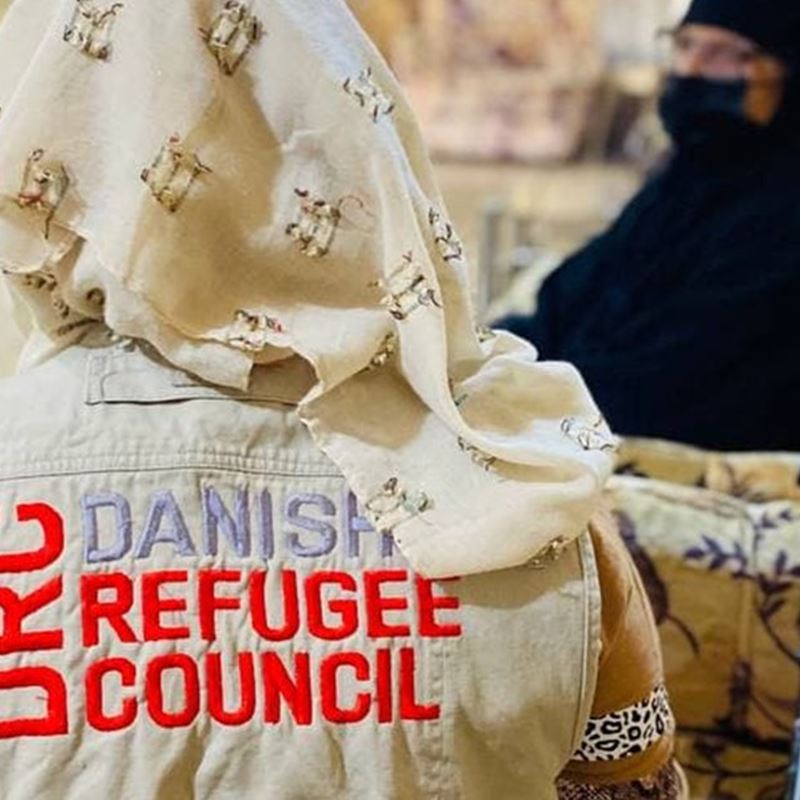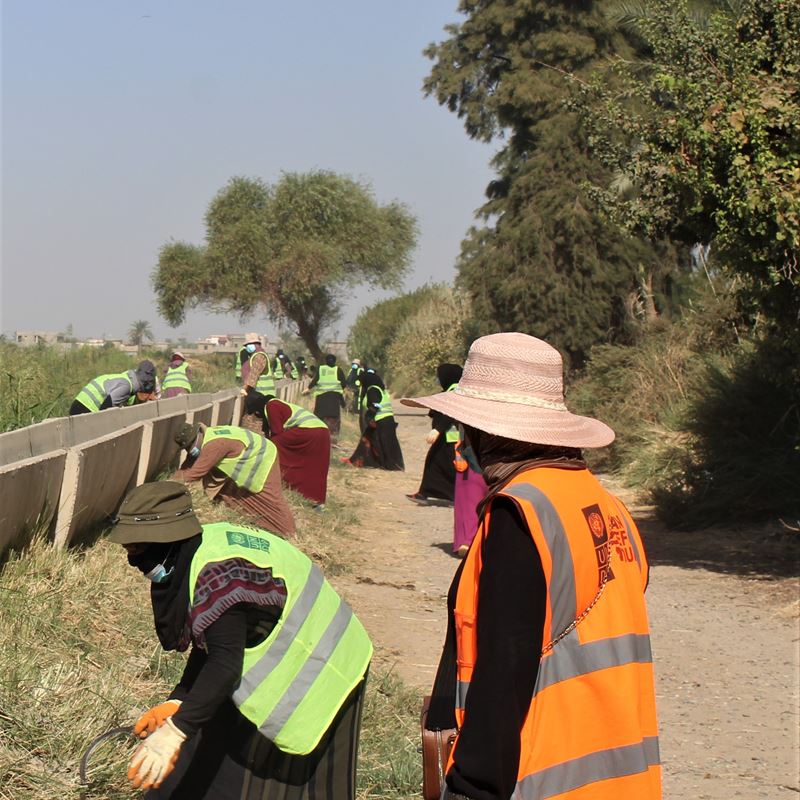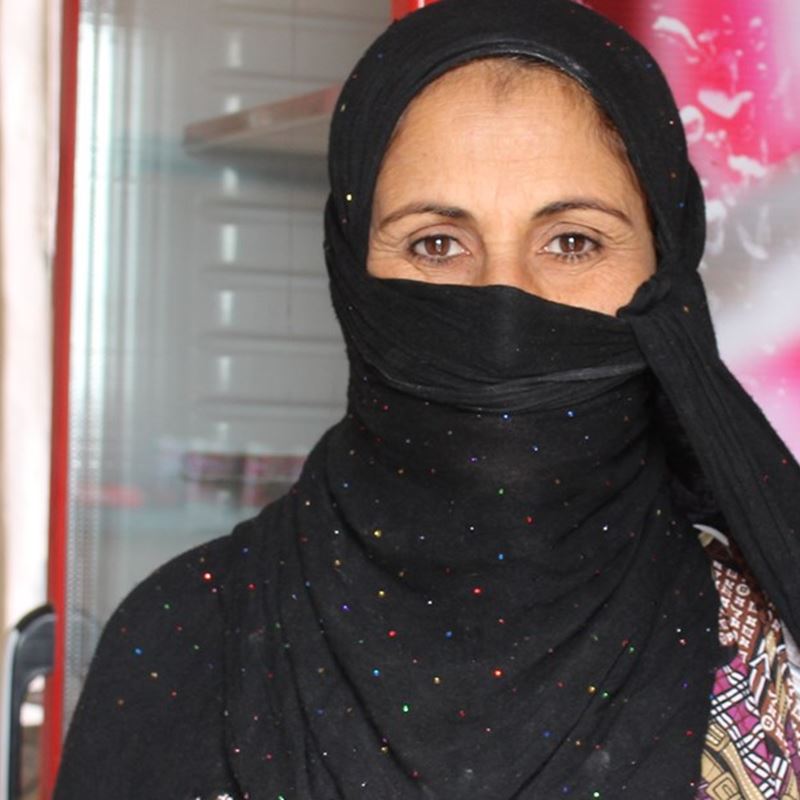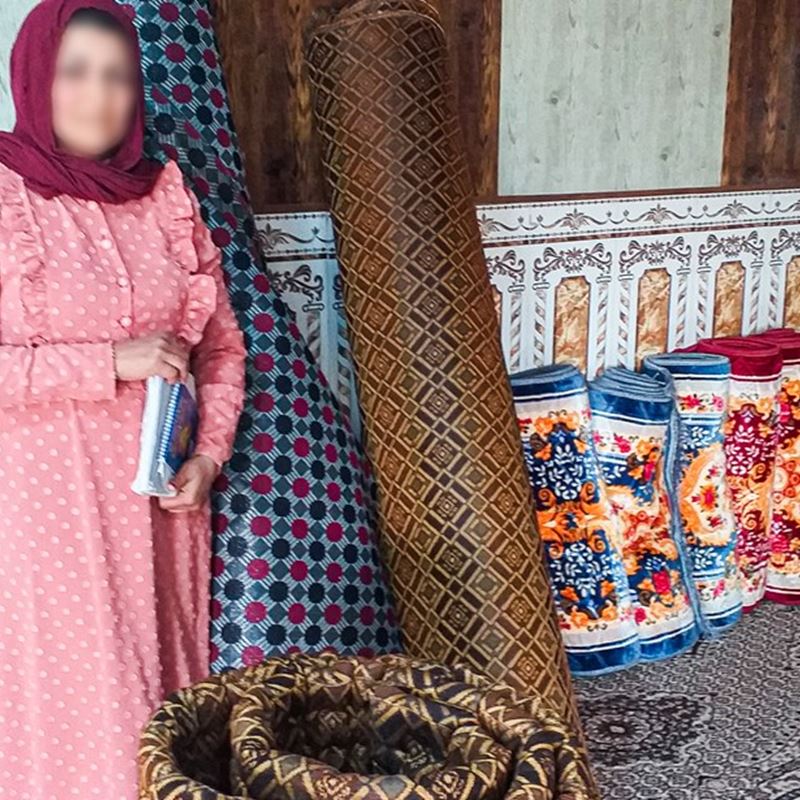Today, December 10th, marks both Human Rights Day and the end of the thirtieth annual 16 Days of Activism campaign. Every year, the period from November 25th to this date is a dedicated time for raising awareness on – and strengthening efforts towards addressing – violence against women and girls (VAWG) and gender inequality.
Significant progress has been made in the last thirty years, but there is still a long way to go. Too many women and girls are exposed to violence, including in Iraq, where it remains pervasive. Violence against women and girls is a grave human rights abuse deserving more action and investment to prevent and respond to it and its underlying causes. DRC is a signatory to the Global Call to Action on Protection from Gender-Based Violence (GBV), which recognizes that gender inequality is both a cause and consequence of VAWG. Addressing inequalities between women, men, girls and boys and the gender norms and perceptions underlying them must be at the center of our collective calls and actions. This includes promoting women’s economic empowerment which can, over time, contribute to eliminating VAWG.
Through its experience delivering economic recovery interventions in Iraq, DRC has – among other activities – been supporting women with cash assistance to help them overcome shocks or meet immediate needs, engaging them in work opportunities to provide short-term income and help them break into the labor market, and providing grants to support them to start and run their own small business. Global experience shows that – when properly designed – initiatives aimed at supporting women’s economic empowerment are important components to helping them escape violence in the home and the community.
Violence against women and girls in Iraq remains prevalent and widespread.
In Iraq, gender norms and perceptions, a struggling economic situation, conflict and displacement have resulted in significant inequality between men and women. Despite policies and ongoing initiatives aimed at advancing gender equality – initiated by the Government, civil society, and international actors – much more needs to be done to address inequalities between men and women, girls and boys in the country.
Gender inequality can often manifest into violence, particularly against women and girls. Recent, reliable statistics on the prevalence of VAWG in Iraq are limited, however it is understood to be widespread. Displacement and disability can also increase women and girls’ risk of being exposed to violence. On top of this, humanitarian assessments have shown that COVID-19 has resulted in an increase of violence against women and girls in many areas, particularly in domestic violence, though the longer-term impacts of the pandemic on VAWG and gender equality in Iraq are not well understood.
At the same time, access to services to prevent and respond to violence against women and girls remains limited, including because of insufficient funding, lack of awareness, gaps in coordination across sectors and actors, and lengthy and time-consuming processes for official reporting and response. Barriers and challenges accessing pathways that do exist – including fear of revenge, punishment and/or social stigma as well as a lack of confidence in or awareness of services – means that these services remain underutilized and incidents of violence against women and girls remain significantly underreported.
The Iraqi Constitution guarantees equality to all and prohibits discrimination based on gender, including prohibition on all forms of violence in private and public spaces. However, national legislation contains several gaps in protections against violence against women and girls and for survivors – and in some cases even reinforces harmful gender norms and assumptions that perpetuate this violence. For example, while the Kurdistan Region of Iraq has a law on domestic violence,[v] at the federal level there is no legislation specifically defining, prohibiting and providing protections for victims of domestic violence. The amendment and adoption of this legislation has been a key call of women rights actors. Still, the legal framework for the Kurdistan Region of Iraq also has gaps; for example, at both the regional and federal level a perpetrator accused or convicted of rape can marry the victim to avoid punishment – something that the victim may feel or be pressured to do to avoid stigma.



